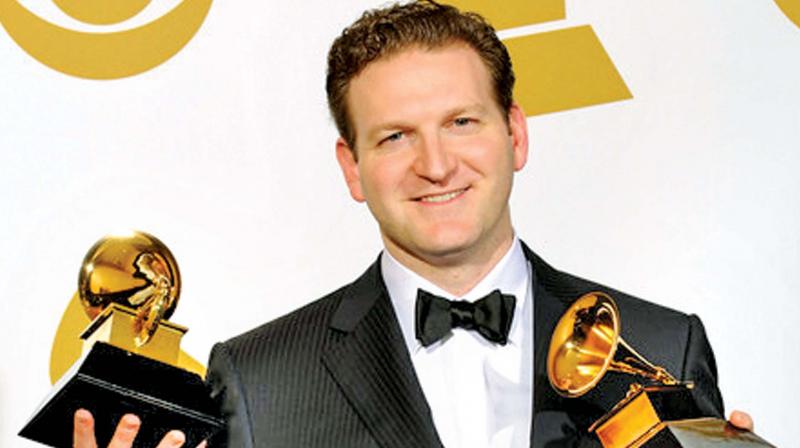Transcending borders
Grammy-winning American choral director, Kevin Fox, visits the city and tells us how music can help bring nations closer.

With just their backs facing the audiences, wielding a baton in their hands, choral directors or conductors, as they are known, are known to evoke not just your auditory nerves, but many emotions. They can bring them to life with the right blend of sopranos, tenors and altos. Think of any choir that stole your heart — there must be innumerable nights that its choral director spent in tuning all their voices to come together, which is something we may not realise. Grammy-winning conductor, the founder and artistic director of the Pacific Boychoir Academy, from California, Kevin Fox, with over 20 years of experience under his belt, has taken on a journey to take his musical experience across continents.
As he visits Chennai as a part of the India Choral Fellowship program, an initiative of US-based Classical Movements, led by Neeta Helms, who has been practicing cultural diplomacy in over 145 countries, Kevin speaks to us about how music has the power to transcend the borders and break the barriers. “I grew up singing in choirs. As a kid, right from when I was eight, I was a part of one. My mother used to tell me that I used to make lots of noises around the house. And choir was probably a way to channel that. As I grew older I heard many different choirs and it’s one of the most amazing sounds I have ever heard. I thought San Francisco needed a world-class boys’ choir and started Pacific Boychoir in 1998 as a school, because boys’ voices change and we only have little time. We’ve been lucky that the boy choir has performed with many orchestras around the world and were fortunate to receive the Grammy award,” Kevin reminisces about his journey winning the much-famed award for the boy choir’s recording of Mahler’s Eighth Symphony in 2010.
It is important for countries to have cultural exchanges through music, Kevin believes. “Music is something that can bring people together. If you put people from different countries in a room at once, they can come closer through music, even if they don’t speak the same language, and they don’t have to have known each other before. It’s very important in our world to have cultural exchanges to enhance our knowledge on music between all the countries.” With films like La La Land bringing back musicals into mainstream cinema, when asked if he thinks there could be a rebirth of movies like Sound of Music, giving more space for classical music in commercial films, Kevin shares, “A lot of people think that classical music is confined to small pockets, which is true in India, as well as America. We see movies where we hear an orchestra throughout, and I guess people are more connected to music than we even realise. There’s a lot of choir music and singing for movies, and I think it’s important for people who are interested in classical music to embrace the way it is being used and the way it is being composed for movies, television or any other medium, rather than traditionally going to a concert hall. I would definitely hope that there would be more such movies.”
With a growing number of musicians replacing instruments with electronic music, Kevin opines, “It’s cheaper to use electronic music. I always encourage people to use choirs, and hopefully singers are going to be the last ones to get replaced, since we have words and a computer still can’t sing the words for us. (laughs)”
Kevin has been visiting AR Rahman’s KM Music Conservatory, Madras Musical Association during his trip to India, and will later visit a few of Delhi and Mumbai’s music academies. “This is my first trip to India, and I am learning as much as I am sharing. The mission here is less musical and more social — in a way of exchanging knowledge. I’ve been very impressed by the choirs here. Sometimes it is difficult to sustain the focus over many hours, which is a problem for Americans. Here I see that people are very keen and focused. I would love to conduct an Indian orchestra sometime soon,” he says and signs off.
